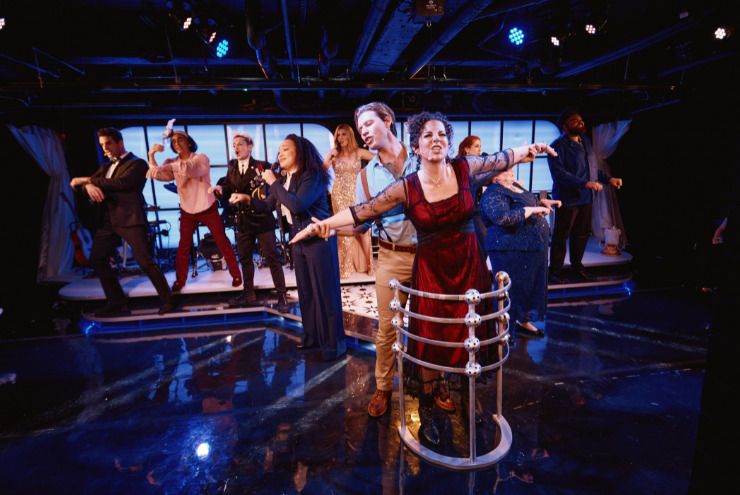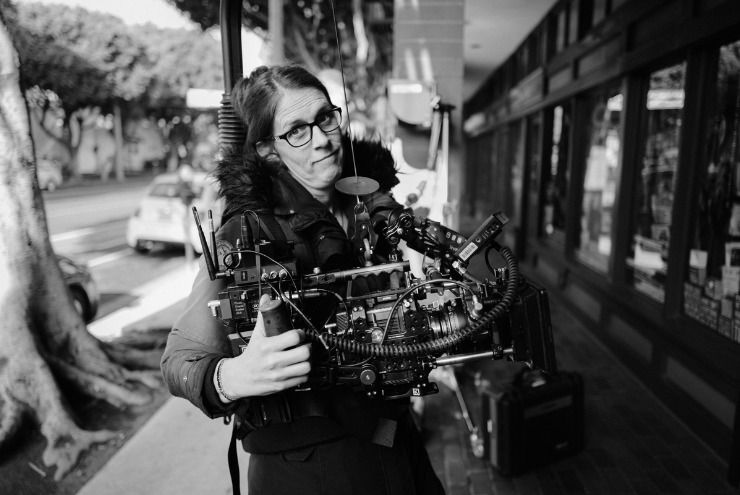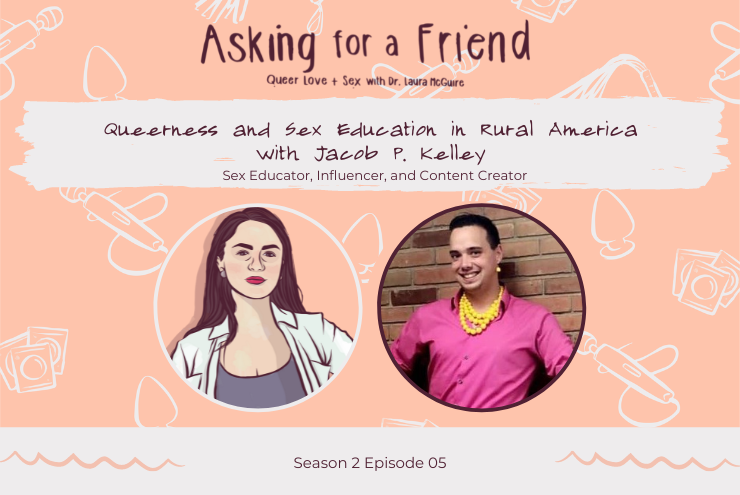I first came to know of T Lavois Thiebaud—and became immediately obsessed—upon discovering their collaboration with musical duo Merel & Tony for the video Matroesjkpop. So I was delighted to learn about their new collaboration, ALMOST PERFECT WORLD, a musical film “rendered righteously imperfect” and meant as a New Year’s offering for 2023. This new film is whimsical, melancholic, wild, thoughtful, frenzied, and contemplative, which is also the perfect way to describe this magical collaboration. ALMOST PERFECT WORLD was conceptualized and…
Finding Community as a Queer Single Parent
Posted on December 7, 2022Being queer in the South can often be a lonely experience, but when you’re queer and a single parent, you might think it’s next to impossible to “fit in.” While your top priority is likely your kids, that doesn’t mean you don’t deserve to find a supportive community and to feel like you’re a part of something greater. …
The Texan Behind Off-Broadway’s Smash Hit ‘Titanique’
Posted on November 16, 2022As a gay youth living in a small house in the middle of a cotton field in Needville, Texas, Tye Blue never dreamed that he would one day have the chance to produce and co-write an Off-Broadway musical that would earn the praises of none other than the Andrew Lloyd Webber.…
Cinematographer Bianca Cline on Filmmaking, Trans Representation, and ‘Marcel the Shell’
Posted on October 17, 2022When Marcel hit theaters in the summer of 2022, millennials flocked to see the sentient one-inch seashell we had all come to know and love from the viral YouTube video of the same name. Marcel is charming and humorously witty and leaves viewers with that comforting tingle one can only experience following a healthy dose of nostalgia. The media frenzy surrounding Marcel’s release was more than Cline was used to, but it offered her the opportunity to not only discuss…
How the Overturn of Roe v. Wade Will Impact LGBTQIA+ Couples in the South
Posted on September 23, 2022The U.S. Supreme Court overturned Roe v. Wade on June 24, 2022. In doing so, the Supreme Court gave states the right to outlaw abortion. Several states, many of them in the South, have trigger laws, which state legislators have already approved, that went into effect immediately or almost immediately after Roe v. Wade was overturned. A perhaps unforeseen result of the overturn is that the ruling may also make it more difficult for LGBTQIA+ couples in the South to adopt…
Texas Author Patricia Highsmith’s Queer Life Brought to the Screen in ‘Loving Highsmith’
Posted on September 16, 2022Loving Highsmith, playing September 16–18, at the Museum of Fine Arts, Houston, depicts the career of author Patricia Highsmith through the intimate lens of her love life. Patchy and irregular, the film encapsulates the aloof nature of queer love in a time gone by. Highsmith is perhaps best known for writing the Tom Ripley novels, as well as Strangers on a Train (1950)—the basis of Hitchcock’s 1951 film—and The Price of Salt (1952). The latter was first published under a…
Changing Pronouns: An Interview with Publicly Private’s Kollyn Conrad
Posted on September 12, 2022As a non-binary southerner, I’m all too familiar with society’s pushback to gender and sexuality exploration. Like so many other queer and trans folks, my process of finding the identity that feels best to me is one that is ever-evolving. Yet, from broader society—and often, from within the LGBTQ community—we’re not given the grace to navigate identity at our own speed, to be brave enough to come out over and over again as that identity evolves, and to stand in…
AFAF Ep. 12: Sexological Entrepreneurship with Mickie Woods
Posted on July 13, 2022In the season two finale of the Asking for a Friend podcast, host Dr. Laura McGuire sits down with Mickie Woods, founder of Intimacy Games, to chat about entrepreneurship in sexological spaces, approaching conversations about love and sex with a new or long-term partner, and how the metaphysical and spiritual realms play into her sexology work and business.…
Houston-based ‘Paradox Moth’ is the Queer, Black-owned Streetwear Brand Breaking Stereotypes
Posted on June 30, 2022The COVID-19 pandemic forced us to get creative—in the ways we work, the hobbies we adopt, and the art we make. For queer Houstonian Chuck Ohamara, that creativity birthed Paradox Moth, a fully inclusive, LGBTQ-focused, minimalist streetwear brand. Along with fellow co-creator and queer model Alex Sundstrom, Ohamara set out with a simple mission: to build a fashion brand for everybody and every body. “It started as a side hustle,” Ohamara explains. “We wanted to test how to run…
Queerness and Sex Education in Rural America with Jacob P. Kelley
Posted on June 7, 2022On this episode of the Asking for a Friend podcast, host Dr. Laura McGuire chats with sex educator, influencer, and content creator Jacob P. Kelley about queerness and sex education in rural America, their experiences in entrepreneurship, HIV outreach and prevention, and fighting stigma.…













